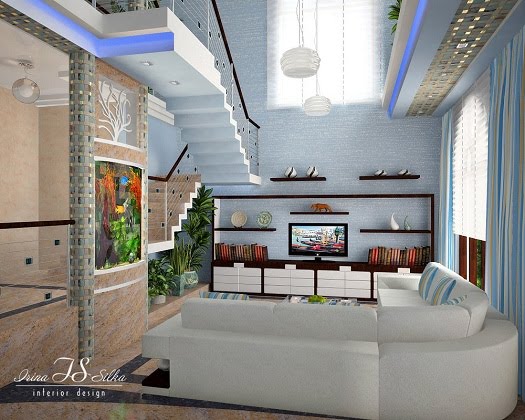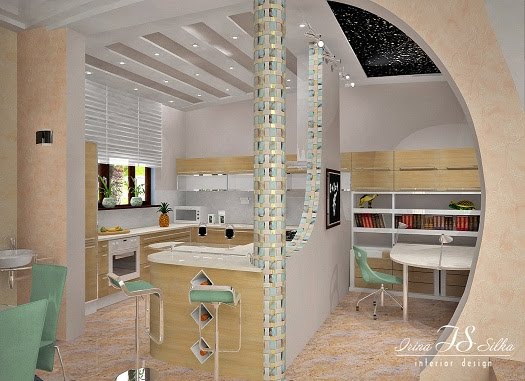Carl,
I may be a little biased as I am a General Contractor, but one of the reasons your type of book sells is that consumers believe they can save money easily.
There is nothing easy about building a house.
Calculate how much your time is worth, multiply that by a year of your life and compare that to the cost of a General Contractor.
If it pencils out and you live for the challenge, enjoy.
George
Hey George, I think you’re right on the money!
There are no free lunches. You will earn your money when you act as the General Contractor on your own new home. I’ve always said that...but, no hammers need be lifted.
The money one earns by acting as their own General Contractor can equal one whole year of their current income, yet it’s a part time job done in their spare time!!
One needs to "pencil out" what their spare time is worth.
Thanks for writing,
Carl
Suggested Reading:
From the FAQ on byoh.com: Q: How much of my time is this going to take?
Interior design and home design, furniture design, architecture, decorating, bedroom design, advices and tips. Home Decoration Ideas. Information and inspiration for your ideal home design, kitchen, including design ideas, photos, decorating, remodeled kitchens, Modern Furniture, cabinets, furnishings, redecorate, Kids Rooms, flooring and more
General Contracting-Time Involved
Concrete Leveling
"Hi Carl,
My house has concrete slabs in the back yard which make up my patio.
I live in NY State and the constant changing weather has caused the slabs closest to the house to heave inward so that any water whether it is melting snow, rain, or just washing off patio runs inward and sits at the foundation for hours and sometimes even days depending on the weather.
Is there a quick and fairly inexpensive fix for this or will I need to have it replaced?
Thanks, Nancy"
Hi Nancy,
Using a concrete slab for a patio is a good way & one of the least expensive ways to build a patio.
Unfortunately, nothing lasts forever, especially concrete slabs, without footings or a good gravel sub base.
Unprotected from frost and freezing ground, they heave and crack. They also sink when they are poured on non-compacted earth, such as near a house foundation.
In your case, an additional problem may occur due to the sinking, if it hasn’t already, and that is that the sitting water may eventually seep into your basement.
One solution I have seen work is slabjacking, also called mudjacking.
Concrete leveling or slabjacking (mudjacking) is a procedure that attempts to correct an uneven concrete surface by altering the foundation that the surface sits upon.
It is a cheaper alternative to having replacement concrete poured, and commonly performed at small businesses and private homes.
It is a process of leveling the concrete slab that can both raise, or float the old cracked slab back to its original position and create a new foundation of cement mortar or sand mix by injecting the mortar under the slab through a hole, under pressure.
Lifting a slab using this method can often be accomplished in a few hours.
Check for concrete leveling companies near you by Googling "concrete leveling" or "slabjacking".
Here’s a short video on the subject
However, you may need to have the slab(s) removed, the soil re-graded, compacted, and a gravel sub-base installed, and new slab(s) poured.
Compacting the soil won’t prevent this from happening again, but it will help add years to the lifetime of your patio.
Compactor
If you do replace the concrete slab you may want to consider using permeable (porous or pervious) concrete when you redo the patio.
Permeable concrete allows water to pass through and drain into the gravel sub-base.
Permeable concrete uses the same equipment and process as common concrete. The difference is larger pea gravel and a lower water-to-cement ratio to achieve a pebbled, open surface that is roller compacted.
A good concrete subcontractor should be able to help you decide what to do.
Good luck,
Carl
KILZ Launches Pro Painter Sweepstakes Contest
 By Mark J. Donovan
By Mark J. Donovan
KILZ, the paint and primer company, announced last week their first ever National Pro Promotion contest. It is a contest targeted only to professional painters and offers them a chance to win a new Ford F-150 truck as the grand prize. There are also other prizes to win including BRAVIA 46” LCD HDTV and Sony Home Theater Systems, and Coleman Tailgate Packages. To learn more and to participate in this contest see: http://www.kilzpropainter.com/. Hurry as the sweepstakes contest ends this week!!
Construction Cost Estimating Confusion
Carl,
I wandered into your website today. Very impressive. I started digging into things and found a couple of things I couldn't understand.
First, on your Cost Estimating Explained page, you mention that after each category on the spreadsheet will be a percentage. I don't see percentage on the spreadsheet after any of the categories.
Second, on the link for Cost to Build a House in Tucson Arizona, the spreadsheet has criteria, for example, Number of Corners, Foundation Quality Class (#6), Windows and Door Quality Class (#4), etc. I'm not sure where or how
to input this information into the spreadsheet provided.
Can you help point me in the right direction? Thanks.
Tony
Hi Tony,
I can see clearly how those sentences can be misinterpreted. Thanks!
I changed the wording on the "Cost Estimating Explained" page to make the sentences clearer.
Here are the changes I made in the wording (scroll down the page):
From:
You will notice a percentage after each category. This represents a percentage of your total building budget. The percentage is NOT “cast in stone”.
To:
In the example below, you will notice a (suggested) percentage after each category. These represent typical percentages of a total building budget. Percentages are NOT “cast in stone”.
So Tony, the percentages do not actually appear on the spreadsheet, only in the example because they are just suggested percentages and they are not “cast in stone”
As for your second question, the criteria referred to is explained in the sentence above the criteria, where it states: This estimate used the following criteria in the “Residential Building Cost Calculator” found on my “Getting Started” page.
The spreadsheet referred to in the Cost to Build a House in Tucson AZ is the spreadsheet that you will receive (get) from the calculator after completing all the questions on the calculator.
Thanks for writing and I hope I've been able to help.
Carl
A House Should be Designed for the Lot
Carl,
We have a 3 bedroom side split house.
We have an outside walk-in to the basement at the back of house. You walk off the back patio past the kitchen window go down 5 steps, and on your left is the basement. There is a bathroom window above and to the left of the basement entry area
This basement entry area has an end wall and a side wall of cement with iron railing going around the edges.
In the bottom of the basement entry area is a drain for water.
This works great until we get a really hard rain that comes fast, sometimes the water can not get away fast enough and I have water in the recreation room.
We would like to put a roof over this walk-in but we are not sure how to go about this. We are looking for ideas.
Carol
Hi Carol,
I would guess you have been living with this problem since you moved into the house. The problem has probably existed since the house was built, as the problem basically, is a result of the builder and/or the developer not planning or designing the right house for the right lot.
 |
| Typical Split Level Home |
So now, keeping the water away from your house has become your responsibility.
Keeping the water away from any house is the NUMBER 1 rule of stopping all water problems in any house.
I assume (it’s dangerous to assume) that you have taken care of (eliminated) water run off from roofs, sidewalks, and the back yard with (operational) gutters with extended downspouts, and grading the yard and walkways to drain away from the foundation.
Your idea for a roof may work if you have taken care of the above.
Ideally, you would want a roof that does not block out light yet can do the job.
Sounds like a job for a glass roof.
Here is an example I found. It’s not a split level home, but it looks like the owner may have had the same problem as you.
 |
| Photo Courtesy of Sun Design |
Perhaps a design similar to the shed roof over the front door in the 1st (top) photo above might work. (You might even be able to build one yourself).
Either way, you’ll have to design it with that bathroom window in mind. That shouldn’t be a big problem.
Good luck,
Carl
Home & Landscape Design Software Sale
Shark FX Version 7 is Punch Software's flagship 2D/3D CAD product featuring professional level modeling and rendering capabilities. Shark FX also offers interoperability with other CAD technologies at a fraction of the price of many competitors.
Shark FX v7 is ON SALE NOW at only $495!!! (Regular price: $1,795)
You SAVE $1,300!! WOW!
Home Construction up 4% in August, But Stormy Skies Still Ahead
By Mark J. Donovan
Though not a grand slam, seeing single family home construction increase 4% in August over the previous month was a welcome sign. Apartments and condominiums also shot up a whopping 32% during the same timeframe. This said new home construction starts are still down 78% from their peak in January of 2006.
Though this news was encouraging I am still not optimistic that the housing market is on a clear path to prosperous times again. With unemployment ticking up to 9.6% officially and slated to go even higher before year end, its unimaginable that sustained improvement in home construction starts will continue unabated. In addition, with so much uncertainty in the national politics, massive tax increases kicking in January for everyone, and expected large health insurance premium increases starting soon, it’s hard to believe that there is smooth sailing ahead in the home construction industry. On top of these harsh realities there are still many prospective home buyers waiting and hoping on the sidelines for even lower house prices. Couple all of these facts with a high inventory of existing homes on the market and increasing foreclosures and the prospects of a sustained improvement in the home construction business seems highly unlikely.
It appears builders feel the same way about the home construction market prospects. The National Association of Home Builders (NAHB) also reported its monthly index of builders’ sentiment in September, and it remained unchanged at 13. This is the second month that it has been at this level, the lowest since March of 2009.
Until there is a change in the national politics, less uncertainty with out-of-pocket expenses, and more income into the savings accounts of the average homebuyer, the home construction business is likely to stay in the doldrums for the foreseeable future, regardless of this positive blip of news.
A House to "Get By" in!
Attention Deadheads, here’s bit of real estate news you will find interesting. The former home of the late Jerry Garcia, the Grateful Dead’s beloved lead guitarist/singer/songwriter, is on the market for $3,995,000.
It’s the same home Garcia owned at the time of his death in 1995...by: Lauren Riefflin, PR Intern..Read the REST
 |
| Listen to "I Will Get By" in the "Touch of Gray" Video |
Carl
Trip to Annecy, France and Classic Stone House
 Spent the Week on the Shores of Annecy Lake in a Classic Chateau Style Hotel
Spent the Week on the Shores of Annecy Lake in a Classic Chateau Style HotelBy Mark J. Donovan
Last week I was in Annecy, France and had a chance to climb a mountain in the foothills of the French Alps. Along the way to the mountain I was able to snap some gorgeous photos. Shown in the adjacent picture is a classic stone house on the outskirts of Annecy, France.
The views at the top of the mountain were absolutely spectacular. I also had a chance to observe up close and in person paragliding. I watched probably a hundred people take off from the edge of the mountain (around 1300 meters) into the skies over the Annecy Lake valley area. Though I didn’t attempt to paraglide this time, it’s on my list of things to do on my next trip to Annecy, France.
While in Annecy, I stayed at the Palace de Menthon, a classic chateau style hotel sitting on the shores of Annecy Lake. Annecy Lake was absolutely gorgeous with emerald water. It sits at the foothills of the French Alps, near the Swiss border and is absolutely crystal clear. It is considered the cleanest lake in all of Europe, and I have to agree. It was simply spectacular.

Irina Silka Project on 3D Kitchen and Kids Study Room
Buying Land Without a Real Estate Agent
My husband & I are looking at buying land that is for sale by owner (so no
real estate agent is involved).
If we make an offer what would you suggest the contingencies be with the deal? (Perk test, title insurance, survey...?)
Also who typically pays for these, the seller or the buyer?
Thanks,
Shannon
Hi Shannon
Everything in real estate is negotiable...everything!
In a buyer’s real estate market (now) the seller usually pays for everything.
As the market shifts to a sellers market, the negotiating power of the buyer shifts in favor of the seller.
A perk test, title insurance and survey are just a few of the contingencies I would want.
Other contingencies I would insist on (in no particular order) are;
• A guarantee it is a buildable site as evidenced by obtaining a building permit BEFORE paying for the land
• A guarantee of construction and/or permanent financing, or land financing*
• Potable water is guaranteed
• Assurance that my house design will fit the site to my satisfaction (need that survey)
• A soil analysis
• The location of the septic field and tank (and the well) as required by the local health /building inspection departments
• Everything else that’s on my Checklist for Buying Land
• As well as anything else you can think of or that concerns you
Land represents a healthy chunk of money in building a new house.
Don’t cut corners in the process of buying.
There is a lot of work involved in buying land.
Mistakes and omissions can and do occur, and rectification, if any, can be costly and/or time consuming.
I would not dream of buying a piece of land without professional help…not even a piece of land in a subdivision.
The use of a Real Estate Lawyer and/or a buyer’s agent (Realtor) to act as a facilitator and a source of recourse if things go bad is wise.
You don’t need but a couple of hours with an attorney to draw up and review a buy/sell agreement.
And, a (Realtor) buyer’s agent should be willing to work for you at a greatly reduced (negotiated) fee. In return for their fee, they should save you a bundle of time cutting through red tape and gathering information.
More importantly, a Realtor, through their access to their local MLS (Multiple Listing Service) can pull up comparable land sales and help you determine if you are getting a good deal.
Remember, I learned everything the hard way.
Here are some additional articles I have on www.byoh.com that you should find helpful:
• Land Surveys
• Land Surveying-Placement of Your Home
• Buying Land Tips - Soil Analysis
• Buying Land to Build On
• Is it a Buildable lot?
• Is it a Buildable lot? – Part 2
Best of luck,
Carl
* Since there are NO real mortgage financing, or loan guarantees, you should hold off paying the seller for the land until the actual closing of your mortgage or loan…EVEN IF YOU PAYING CASH FOR THE LAND!
Subcontractors with No Workman’s Compensation Insurance
Carl,
I have two issues I'm dealing with. I want to do some remodeling on my primary residence.
Is there any way I can get some type of insurance to cover me in case a subcontractor with no workman’s compensation insurance gets insured at my residence in Kansas?
Second situation is I'm thinking of building a vacation home in rural Missouri and being my own general contractor.
Is there any special insurance on new construction to cover me when some subcontractors don't have workman's compensation insurance?
Thanks,
Ken F.
Hi Ken,
No, to the best of my knowledge there is NO insurance that YOU can buy to cover (protect) you.
Hire absolutely no subcontractor (nor part-time employee) who does not carry workman’s comp and liability insurance......read the rest!
Good luck & be cautious,
Carl
Bring a Green Atmosphere into Your House with Indoor Plants
Rigid Foam Insulation for Interior Application
Carl
Is it plausible to insulate between the studs with fiberglass and then use rigid sheets of polyiso on the face of the studs to act as a thermal barrier as well as an insulator?
I’m thinking of using un-faced high density fiberglass (r15)along with 1/2" polyiso (r3.5)which will be covered by 1/2" Sheetrock® as a finish wall covering...
Jack
Hi Jack,
So that folks will know, “Polyiso is a closed-cell, rigid foam board insulation consisting of a foam core sandwiched between two facers. It is one of the three main types of foam insulation. (Read article & watch the videos at “Rigid Foam Insulation”).
My first concern was how you would hang drywall (Sheetrock®, gypsum board) over the rigid foam.
So, I asked my friend and architect David Moore of Original Home Plans what he thought.
Here is his reply:
Carl,
Rigid foam is often applied in our area on the exterior of the wall where it acts as a thermal break to keep framing members from conducting heat or cold to the interior.
I have also applied rigid foam to the interior of the framing, as Jack describes. You do have to be careful when attaching gypsum board over the foam not to overdrive the fasteners and create a pillowed surface.
Dave
Well Jack, we both learned something today…I think.
Thanks,
Carl
52 Featured Home Plans with Video Tours!
Dear Readers,
Thinking about building a new home?
HousePlanCentral.com has been providing online house plans since 2003.
They are a small, family owned and operated business that provides superior customer service.
HousePlanCentral.com is available to receive your phone calls 24 hours a day, 7 days a week, 365 days a year.
The site even features a modification tool that enables you to draw changes you might wish to make to a home plan…WOW!
And, there are 52 Featured Plans with Video Tours...another WOW!
Visit them today why don’t you,
Carl
Building a Small House
Hi Carl,
We were told we could build a 800 sq ft home on our property and were wondering
how much it would cost and what it includes…the total package.
We would use subcontractors like you mentioned, but are wondering about things like septic, electrical, plumbing, etc. and what you get when building a small house.
This would be for our children and grandson…or else they will leave the state.
Lawnie
Hi Lawnie,
I hope that you were told you could build a second residence on your property by the “right” people.
The right people would be the building inspection department and the zoning department for your locale.
As for the house, the small size would cost a little more per sq. ft. just as home additions do. I have mentioned this on several articles on room additions. (See Cost of Home Additions)
But, if you hire good subcontractors the quality and thoroughness of their work would be no different than if building a big house.
 |
| COOL House Plan ID: chp-26434 |
Number of Bathrooms: 1.0
Width of House: 30 feet Depth of House: 36 feet
Total Living Area: 800 sq. ft.
Foundation Types available for this plan: Slab or Crawlspace
 |
| COOL House Plan ID: chp-26434 |
Using the Cost to Build Calculator found on my Getting Started page this attractive and functional 800 sq ft house came in at $68,112 or $85 per sq ft.
Here is a breakdown of the building costs. Click on the image to enlarge.
 |
| Click on the image to enlarge |
I chose the least expensive “Quality Class” for this initial estimate.
Keep in mind this just a rough estimate of the cost to build.
Until you get your actual subcontractor bids and material estimates or a Total Fixed Price Contract with a General Contractor you won’t have a more accurate total cost.
I think that what you are planning on doing for your children and grandchildren is wonderful.
Good luck,
Carl
Adding a Second Story to an Existing House
Carl,
We would like to add a second story to our 1963, 1500 sq ft ranch home using the same footprint (foundation).
Besides the addition, we want to change the layout of the first floor from 4 bedrooms, kitchen, and family room, and one full bath to an open 2 story foyer, bigger kitchen, master bedroom with a full bath, bigger family room, and a powder room.
The new second story addition needs to have three decent size bedrooms.
One bedroom needs to have an attached bath and other two can share a bath.
Do you have any suggestions, floor plans, approx. cost etc.?
We do not have an Home Owners Association (HOA) to contend with.
Thanking you in anticipation that you will help,
Raj
Hi Raj,
I’m afraid that what you are proposing is much more than an addition.
What you really are saying is that you want is a new 2 story home built on your existing foundation.
I don’t want to get into discussing structural framing requirements but even the existing 1st floor will have to totally redone as load bearing walls for the 2nd floor will be needed. This means that even the basement will have to be prepared for these loads.
The only savings you might realize would be utilizing the existing the existing foundation walls if they are structurally sound.
Since the house was built in 1963 I doubt that even the existing windows are worth keeping.
To get a (very) rough estimate of the cost of doing this I would run a 3,000 sq ft house through the “cost to build calculator" found on my getting started page.
I would use the lowest quality class (#6) for all categories and ignore any other questions that don’t apply as you go through the estimating process.
I believe that even the reworking of the basement support columns (or beams) will be included doing this estimate as well as the total rebuilding of the 1st floor the 2nd floor addition.
This rough estimate will give you an idea of what this project could cost
Check with your local Building Inspection Department to find out if there will be any issues or problems increasing the size of your house as far as they or any of the other departments (zoning, health, etc.) are concerned.
Obtain the services of a local home designer or architect to look the situation over and work with you on designing what you want.
At the same time, find a good local home builder (General Contractor) and get some ballpark estimates on a “turn key” fixed price contract job…NO cost plus estimates or contracts.
A good home builder can also help you with the design process along with the home designer or architect.
Be aware that you may be overbuilding for the area and therefore not receive enough of an increase in your home’s value to compensate for the cost of the project.
You obviously will not be able to live in this structure during its reconstruction so factor in the cost of a rental home and moving twice along with the construction costs.
It’s a big project, one I would not recommend you try to contract yourself.
Good luck,
Carl
Tips on Designing a Landscape Garden with Planting Grass Seed
Picking the Seed
For most places, you will want to use a mix that will thrive in both sun and shade. Read the bags carefully and choose a seed that will grow well in the conditions you have. For instance, while Kentucky Bluegrass is beautiful, it is high maintenance and a challenge to grow in some areas of the country.Preparing the Soil
Get a large quantity of fresh topsoil and spread it evenly over the area. Make sure it is at least 3 or 4 inches deep. Break up any sizable clumps. Although it’s easier if the soil remains relatively dry while you plant, don’t worry if you are interrupted by rain.Spreading the Seed
Don’t spread the seed by hand. You won’t get the proper distribution and your grass will grow in clumps. For a small lawn, you can use a hand crank broadcast spreader. For larger lawns, a push spreader is ideal.To improve the distribution, if you have enough seed, repeat the application over 2 or 3 consecutive days.
Cultivating
Once spread, use a rake to work all the seed into the soil. Keep in mind that any that remains visible will likely become birdseed.Tamp the soil to 'lock' the seed underneath, and level as much as possible. Then water the entire area liberally. Continue watering generously on a daily basis until the grass sprouts evenly. In most cases this is 1 to 2 weeks.
Water at a time of day when the water drops on the new grass won’t burn it—generally late in the afternoon or early in the evening is the best time to water. If it rains significantly, of course, you should avoid over-watering.
When to Mow and Treat
You don’t want to mow the new grass until it is well-established. Wait 2 to 3 weeks after the sprouts appear or until the blades are over 3 inches high.Also avoid applying weed killer or fertilizer to newly planted grass until it is established. These chemicals can actually burn tender new plants.
Brown Patch Repair
In an established lawn with bare or brown spots, start by digging up the browned areas. Apply more soil if needed. Treat the bare spots as if they were little patches of new lawn, and follow the above steps for seeding a lawn.You could also purchase grass patch—a dry green foam infused with seed and fertilizer—to place over the bare patches. Simply apply and keep moist until grass sprouts.
Read more: http://www.doityourself.com/stry/how-to-plant-grass-seed#ixzz0yQidORk6
Basement Concrete Slab Expansion Joints
I have a 32 year old home with a full basement. The floor was poured with the black fiberboard around the perimeter of the basement but has completely rotted away in places.
During the May 2010 floods here in TN the pressure of ground water caused water to shoot through these gaps and flood the basement.
I need to dig out this old material and reseal all the way around.
Do I even need expansion in a buried basement? Isn't temperature basically constant?
A Tennessean
Hi Tennessean,
The water shot up during the flood due to intense ground water pressure (hydrostatic) under the house (due to the flood) and if it hadn't come up through the expansion joint it would probably have caused the slab to float and/or severely break apart.
At any rate, a slab does shrink or expand from drying or temperature changes or as the sub grade compresses a little.
Basements are not usually subject to extreme temperature changes, but even in TN the slab temperature can vary considerably if the basement is not heated in winter. I lived next door to TN in NC for 27 years and I know what your weather is like.
At any rate, expansion joints are required by most building codes partially because no one knows how long the basement (foundation) will be uncovered or unprotected. I have seen basement slabs poured and left for weeks before construction of the house commences.
So, if the expansion strip has disintegrated or rotted away, dig, chip or chisel out what’s left of it and remove all the loose pieces with a vacuum cleaner.
Buy a new expansion strip and cut it to size. Slide the new strip into the joint and tap it with a piece of wood scrap until the top is 1/2 inch below the concrete surface. Caulk the joint with an elastomeric sealant.
Or, the top part of the bad expansion joint can be cut off and the space filled (Caulked) with an elastomeric sealant.
 |
| Sump Pump |
Good luck,
Carl
Blog Archive
-
▼
2010
(331)
-
▼
September
(19)
- General Contracting-Time Involved
- Concrete Leveling
- KILZ Launches Pro Painter Sweepstakes Contest
- Construction Cost Estimating Confusion
- A House Should be Designed for the Lot
- Home & Landscape Design Software Sale
- Home Construction up 4% in August, But Stormy Skie...
- A House to "Get By" in!
- Trip to Annecy, France and Classic Stone House
- Irina Silka Project on 3D Kitchen and Kids Study Room
- Buying Land Without a Real Estate Agent
- Subcontractors with No Workman’s Compensation Insu...
- Bring a Green Atmosphere into Your House with Indo...
- Rigid Foam Insulation for Interior Application
- 52 Featured Home Plans with Video Tours!
- Building a Small House
- Adding a Second Story to an Existing House
- Tips on Designing a Landscape Garden with Planting...
- Basement Concrete Slab Expansion Joints
-
▼
September
(19)















